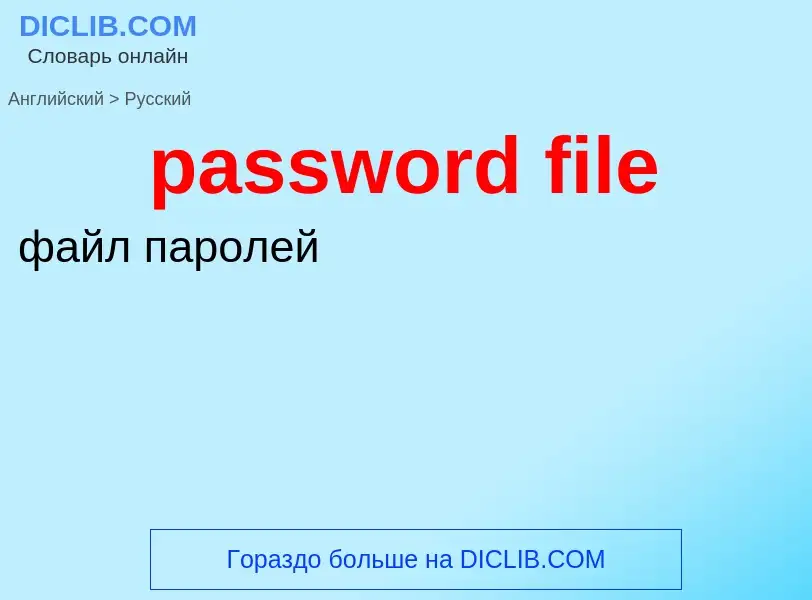Перевод и анализ слов искусственным интеллектом ChatGPT
На этой странице Вы можете получить подробный анализ слова или словосочетания, произведенный с помощью лучшей на сегодняшний день технологии искусственного интеллекта:
- как употребляется слово
- частота употребления
- используется оно чаще в устной или письменной речи
- варианты перевода слова
- примеры употребления (несколько фраз с переводом)
- этимология
password file - перевод на русский
общая лексика
формат файла
структура хранения данных в файле. Существует множество стандартных форматов, особенно графических файлов. На формат файла обычно указывает расширение имени файла
общая лексика
тип файла
определяется типом хранящихся в файле данных. К основным типам файлов относятся текстовые, двоичные, графические, файлы баз данных. Указанием на конкретный тип файла служит расширение имени файла
['wɔtʃwə:d]
существительное
общая лексика
пароль
лозунг
девиз
призыв
клич
призыв, клич
Определение
Википедия

passwd is a command on Unix, Plan 9, Inferno, and most Unix-like operating systems used to change a user's password. The password entered by the user is run through a key derivation function to create a hashed version of the new password, which is saved. Only the hashed version is stored; the entered password is not saved for security reasons.
When the user logs on, the password entered by the user during the log on process is run through the same key derivation function and the resulting hashed version is compared with the saved version. If the hashes are identical, the entered password is considered to be correct, and the user is authenticated. In theory, it is possible for two different passwords to produce the same hash. However, cryptographic hash functions are designed in such a way that finding any password that produces the same hash is very difficult and practically infeasible, so if the produced hash matches the stored one, the user can be authenticated.
The passwd command may be used to change passwords for local accounts, and on most systems, can also be used to change passwords managed in a distributed authentication mechanism such as NIS, Kerberos, or LDAP.




